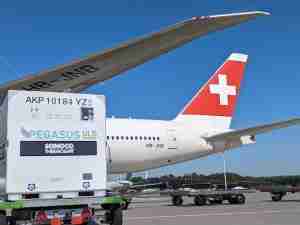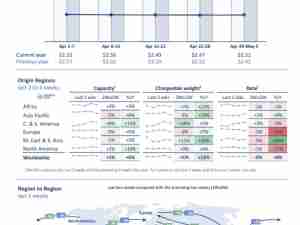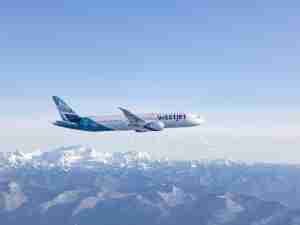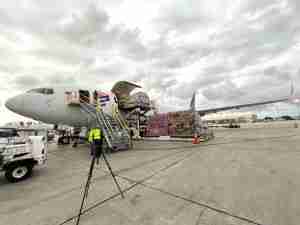VietJet Forecasts 30% Profit Rise Ahead of February Listing
By: | Jan 10 2017 at 02:34 AM | Air Cargo
VietJet Aviation Joint Stock Co., the Vietnam carrier known for its bikini-clad flight attendants, expects profit to surge 30 percent this year on rising passengers as it prepares for its Ho Chi Minh City Stock Exchange listing debut in February.
A total of 23 overseas investors bought 66.5 million shares—equivalent to about 14 percent of VietJet—during a pre-listing stake sale last month, billionaire founder Nguyen Thi Phuong Thao said. The budget carrier is valued at $1.2 billion by its advisers, and it’s also considering a foreign listing and overseas bonds issuance, she said.
“The market is growing fast with rising traveling demand from a large population of young people and an expansion of the economy,” Thao said in an interview in Ho Chi Minh City. “We gave investors a pretty good price—we prioritized quality investors over price,” she added, declining to give specific details on the stake sale.
The carrier is tapping into an aviation market that has risen 20 percent in the last three years in one of the world’s fastest-growing economies, according to the airline. Vietnam’s economy grew 6.21 percent in 2016, the second consecutive year of more than 6 percent expansion.
The International Air Transport Association also forecasts Vietnam to be among the top five fastest-growing aviation markets in the next 20 years based on passengers. VietJet is expecting 30 percent growth in passengers in 2017 after serving about 15 million travelers last year, she said.
VietJet forecasts 2017 profit to rise 30 percent from $101.8 million (2.3 trillion dong) in 2016, according to Thao.
VietJet’s forecast also comes as shares of regional carriers slumped last year. The 17-member Bloomberg Asia Pacific Airlines Index is starting to recover from a 21 percent slump in 2016, the first annual decline in three years and the worst performance since 2011. Oil last year capped its biggest annual gain since 2009, and jet fuel costs may rise.
Thao sold shares at 84,600 dong each in the IPO, according to terms for the deal obtained by Bloomberg. Of the 14 percent stake sold, half were from her and the rest were new shares, she said.
Before the stake sale, VietJet also sold a 10 percent stake to three foreign investors—Wareham Group Ltd., Dragon Capital Markets Ltd. and DC Developing Markets Strategies Public Ltd, according a Ministry of Transport permit to the airline obtained by Bloomberg.
The benchmark VN Index fell 0.2 percent as of 2:31 p.m. in Ho Chi Minh City trading.
To tap into more funding sources, the company’s also in talks with the region’s carriers and banks for a strategic investment, Thao added.
Vietnam’s sole private carrier also expects to begin code-share flights to North America with a U.S. carrier next year, she said.












